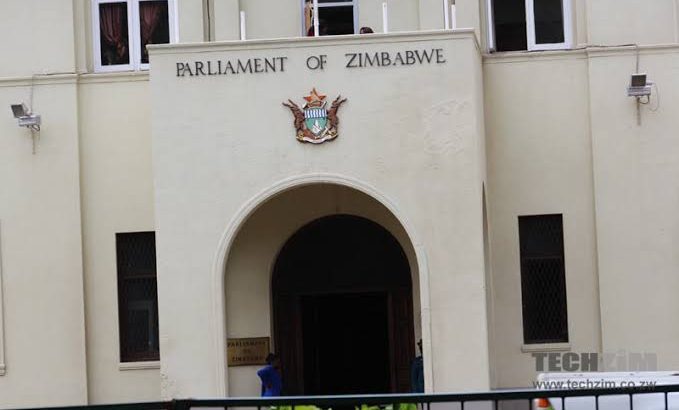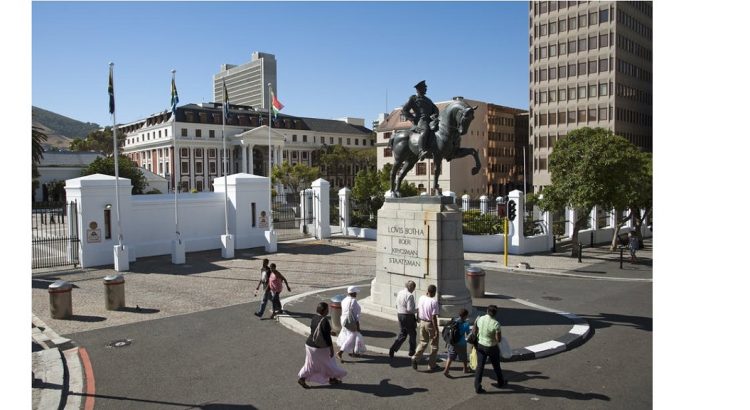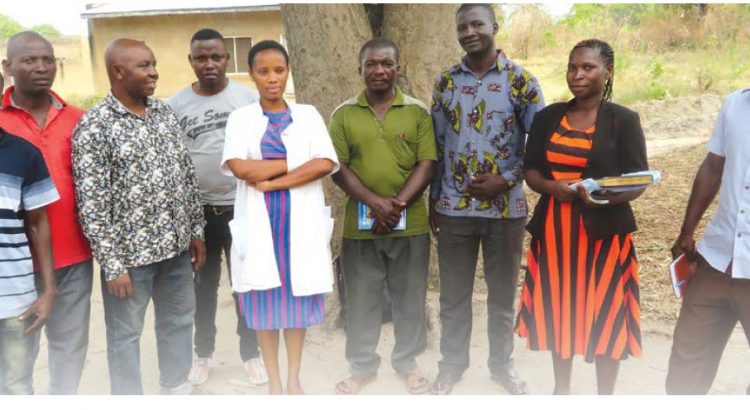Written by Henry Ndlovu, May 2020; the original article can be accessed here.
Introduction
The outbreak of the novel coronavirus (Covid 19), which has become a global pandemic, has profoundly transformed the manner human beings and organizations conduct their daily business. Parliaments across the globe have not been spared from the disruptive effects of Covid 19. However, since Parliament is a creature of the Constitution, its mandate and functions cannot be willy-nilly ‘locked-down’. Hence, despite the constraining situation brought about by Covid 19 preventive measures, Parliaments cannot afford to suspend their cardinal functions indefinitely or for inordinately long periods. Doing so will not only be a dereliction of duty but a breach of their constitutional mandate. Given that the pandemic has necessitated formulation of emergency laws and policies, mobilization and re-allocation of public resources, there is, therefore, a justified need than ever before for Parliament to provide the necessary checks and balances to guard against the excesses of the Executive.
Parliaments, therefore, need to develop and implement innovative ways of conducting their constitutional functions given that their traditional ways of doing business have been rendered practically impossible by Covid 19. This paper seeks to explore some of the innovative strategies that Parliaments can implement during the subsistence of the Covid 19 preventive measures so as to ensure that they continue executing their constitutional mandate.
Impact of Covid 19 on Parliament’s Business
Parliaments across the world generally have three basic functions recognized by law, in most cases the national Constitution, and these are; law-making, oversight and representation. However, the Covid 19 pandemic and in particular, the implementation of preventive measures recommended by the World Health Organization (WHO) and other international and national agencies have adversely impacted the conventional ways Parliaments are accustomed to in conducting their business. In carrying out the aforementioned functions, the law and parliamentary procedures require Members of Parliament (MPs) to physically assemble at the Parliament building, or to be precise in the Chamber, during plenary session or in committee rooms during deliberative committee meetings.
However, lockdown measures have severely affected Parliament’s ability to meet physically or in-person yet this is the crucial time when Parliament should be meeting frequently to respond to the rapidly evolving crisis by passing appropriate legislation and approving supplementary budgets in response to the demands of the pandemic as well as monitoring government actions. Otherwise, if Parliaments do not innovate but succumb to lockdown measures, their powers and functions will be usurped by the Executive. In fact, this is already happening in some countries as evidenced by the enactment of statutory instruments and budget reprioritization by the Executive without the involvement of Parliament. As suggested below, Parliaments can still remain relevant and play their constitutional duties even during a lockdown period by adapting to the demands of the current situation.
Many parliamentary jurisdictions recognize and embrace the right of citizens to participate in parliamentary business in various ways and some of these ways involve physical human interaction such as public hearings and oral evidence sessions or briefing sessions. In Zimbabwe, this right is enshrined in section 141 of the Constitution. Parliamentary portfolio committees usually criss-cross the country soliciting the views of the public on Bills and key public policies. The Covid 19 preventive measures create a challenge for this to be done. However, Parliaments can still gather public views through other means such as social media platforms and live radio public hearings as explained in greater detail below.
Main Focus of Parliament during Covid 19
During a crisis or an emergency situation, the role of Parliament cannot be business as usual given that the situation may require a radical shift from Parliament’s current business or routine to the enactment of emergency laws and supplementary budgets to deal with the situation at hand. It is, therefore, postulated here that during the subsistence of the Covid 19 lockdown period, the focus of Parliaments should be redirected to the following key areas;
- Enacting emergence laws in response to the pandemic
- Approval of supplementary budgets or budget reprioritization
- Oversight on government borrowings and debt management
- Oversight on government decisions and actions with respect to policy formulation and implementation as well as public resource management
- Representational role of MPs in Constituencies
Innovative Strategies of Conducting Parliamentary Business during Covid 19
In order to perform the above-mentioned duties during a crisis situation, Parliaments have to adapt their conventional ways of doing things and embrace new strategies as observed by the Inter-Parliamentary Union (IPU)[1] among its members. Some of these strategies involve the following;
- Physical Sittings of Parliament
Parliaments can still meet physically to transact their business but in a manner that observes the WHO guidelines on Covid 19, particularly the observance of social distancing requirement and the use of appropriate personal protective equipment (PPE). Given the large size of some Parliaments, this may necessitate reducing the number of Members of Parliament (MPs) that may meet at any given time. Parliamentary presiding officers and political parties represented in Parliament can devise an appropriate formula. In this situation, Parliament should only meet to deal with urgent business such as passing a supplementary budget to provide additional resources needed to effectively implement Covid 19 preventive measures. In addition to supplementary budget, it is crucial also for Parliament to approve government’s borrowings during this Covid 19 period as more resources are mobilized either through domestic borrowing or from multilateral lending institutions in order to mitigate the effects of the pandemic. In Zimbabwe, this important responsibility for Parliament is clearly spelt-out in the Constitution, Public Finance Management Act and the Public Debt Management Act. Such sittings of Parliament may also be done if there are urgent pieces of legislation to be passed in response to the Covid 19 pandemic to ensure that decisions and actions taken by implementers are done within the confines of the law.
Besides urgent plenary business of Parliament as discussed above, it is also crucial for relevant Portfolio Committees to continue meeting so as to provide oversight on the Executive. Again necessary measures should be put in place and strictly adhered to ensure that safety of Committee Members and staff attending such meetings is guaranteed. In this case, it is very crucial for the Portfolio Committee on Health to be given a latitude to meet regularly in order to provide effective oversight during the subsistence of the pandemic. This is so because most government efforts and resources are being redirected to the health sector. The Budget Committee and the Public Accounts Committee should also be allowed to meet to ensure that public resources and finance are used transparently and accounted for. It may also be necessary for a Portfolio Committee that deals with social welfare issues to meet in order to ensure that vulnerable members of society; e.g. People with disabilities, orphans, elderly etc, receive government support during the Covid 19 lockdown period. Other parliamentary portfolio committees should only be allowed to meet as and when an urgent need has arisen.
In order to limit the presence of MPs within Parliament’s premises in line with the social distancing requirement, portfolio committees may alternate their meeting days and also committee members can alternate attending these meetings. This can assist in decongesting Parliament’s premises.
- Virtual Sittings of Parliament
Where Parliaments cannot meet physically even in limited ways as discussed above, the only other possible option is transacting business virtually. For many Parliaments, this may be an uncharted territory and as a result may present some teething problems. However, as noted by IPU, many Parliaments have had to resort to “remote working tools” despite the technical and security challenges involved. Some of the virtual platforms that some Parliaments are employing in transacting their business include Skype, Zoom, Webinar, YouTube, Facebook, Whatsapp among others. Zoom, because of its flexibility to accommodate a large group of participants, has become the most popular social media tool. The British Parliament adopted a policy to temporarily conduct its plenary sittings on Zoom and has since been doing this until mid-May when the policy will be reviewed[2]. South African parliamentary committees have adopted the YouTube platform for conducting live meetings.
As illustrated by the above-cited examples, it is possible for parliamentary committees to transact business without meeting physically but virtually on any platform of their choice to deliberate and make recommendations to the Executive on issues related to Covid 19. Some of the pertinent issues that have come to the fore in many countries since the advent of the coronavirus pandemic, which require the attention of parliamentary committees include;
- Additional financial resources to the health sector
- Scrutiny of emergency laws
- Preparedness of the healthcare systems and facilities to manage Covid 19 pandemic
- Oversight on the procurement, provision and distribution of PPE
- Human rights abuses arising from the enforcement of lockdown measures
- Oversight on public finance expenditure
- Oversight on financial donations/grants for Covid 19
- Transparency and Accountability regarding social safety nets; identification of beneficiaries, distribution of relief etc
- Provision of water and sanitation services
- Food production and supply chains (access, availability, affordability of basic commodities and incentives to farmers)
- Economic stimulus packages for the industry (sources of funding, terms, etc)
Constituency Activities
Through their representational role, MPs can still perform their constituency related duties during the Covid 19 lockdown period. Many countries have created Covid 19 Response Teams/ Task-forces to coordinate the implementation of Covid 19 measures. These teams operate both at national and local levels and members are drawn from various government departments. MPs have a duty, therefore, to monitor how these teams are carrying out their duties. If they observe challenges or problems in the manner these teams are discharging their duties, MPs will be within their mandate to bring up such issues to the attention of the Executive or relevant institutions in order to have those challenges addressed.
A number of governments have scaled up social welfare programmes to provide social safety nets to vulnerable members of society whose numbers have swelled due to Covid 19 lockdown measures. It is, therefore, within the duty of MPs to oversee the identification of beneficiaries and distribution of social protection relief in their constituencies to ensure transparency and accountability. This will ensure that such social protection assistance reaches deserving beneficiaries and thus guard against corruption and partisan distribution of such relief assistance.
Given that Portfolio Committees cannot conduct field visits to physically assess the preparedness of healthcare facilities vis-à-vis Covid 19, MPs can fill this void in their constituencies and share information so gathered with the relevant portfolio committees through virtual platforms. The relevant committees can then deliberate on the issue and come up with recommendations to the Executive.
MPs can also play a crucial role in raising the awareness of the public regarding Covid 19 and disseminate information in their constituencies regarding measures being implemented by government to combat the spread of the disease. In this regard, MPs can collaborate with civil society organizations (CSOs) and community radio stations to disseminate relevant information to the constituents. In most rural constituencies Whatsapp has proven to be the most popular social media platform. This is, therefore, another tool that MPs can make use of and thus be able to play their representative role despite constraints brought about by Covid 19 pandemic. However, in carrying out their constituency duties, MPs need to be exemplary in adhering to prevention measures so that they are seen to be practising what they preach to their constituents.
Conclusion
There are no signs in the horizons that the Covid 19 pandemic will vanish any time soon given that it takes time to develop effective vaccines. Parliaments should, therefore, adapt to the new reality and realign their procedures and processes accordingly. The only way for Parliament to remain a relevant pillar of democratic governance in the face of Covid 19 pandemic is to harness new technologies in executing its constitutional mandate and functions. Parliament cannot afford to ‘lockdown’ its functions as this gives the Executive the ruse to assume those functions thereby eroding the vital principle of checks and balances. There is need for accountability by government even during a crisis; on how public resources are being used for instance. This helps to curtail potential Executive excesses of power and public resource utilization or management.




